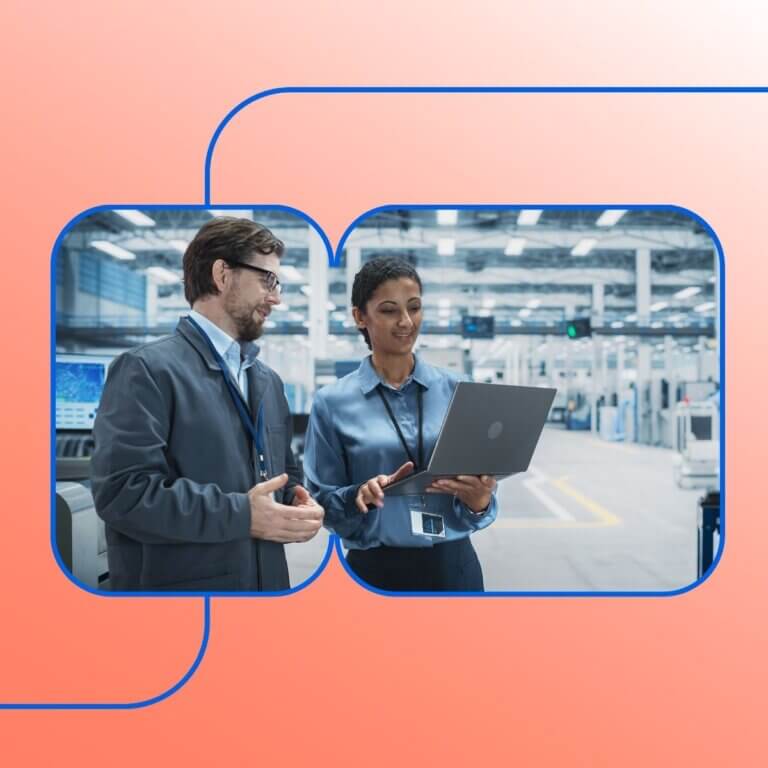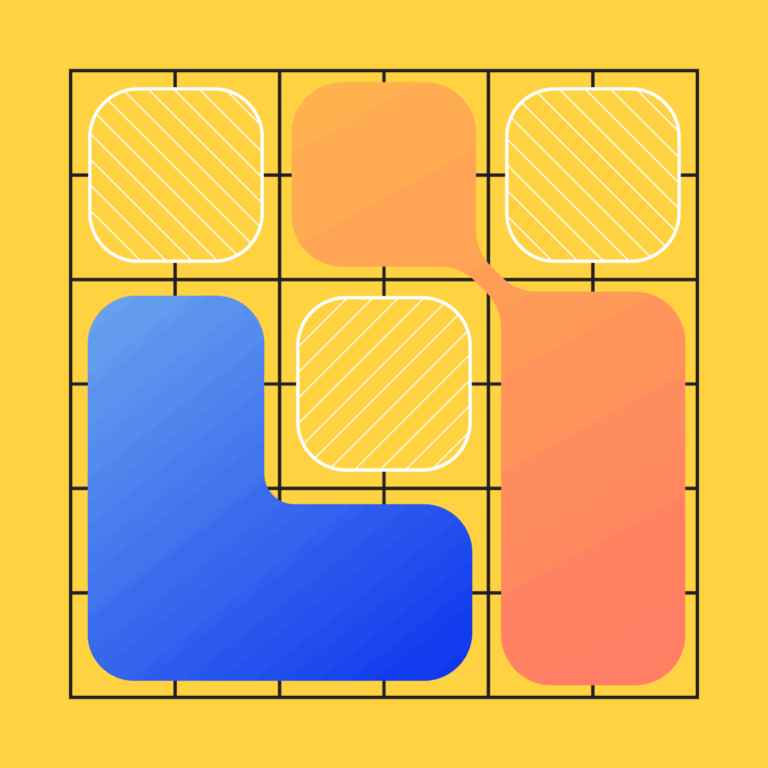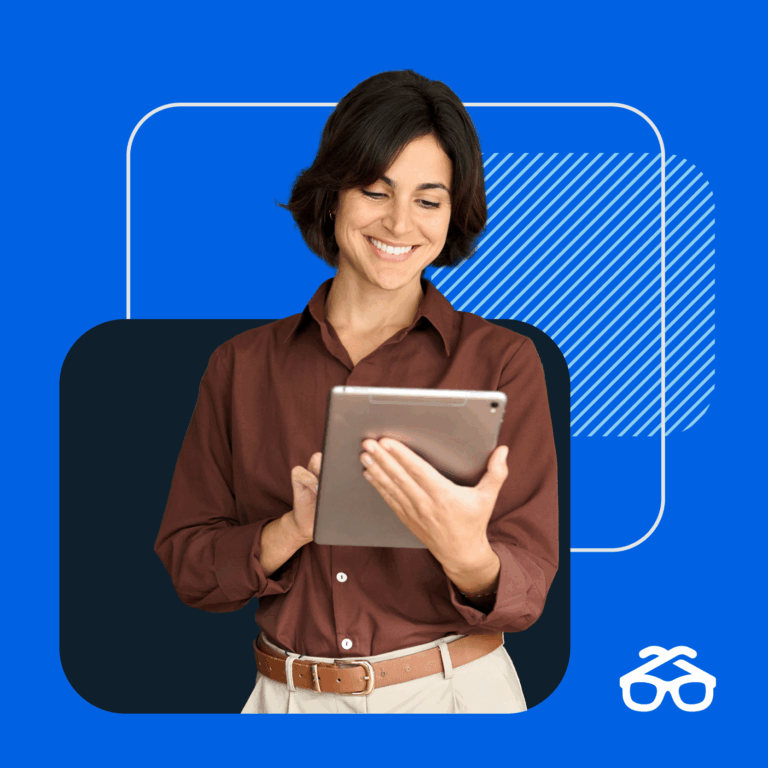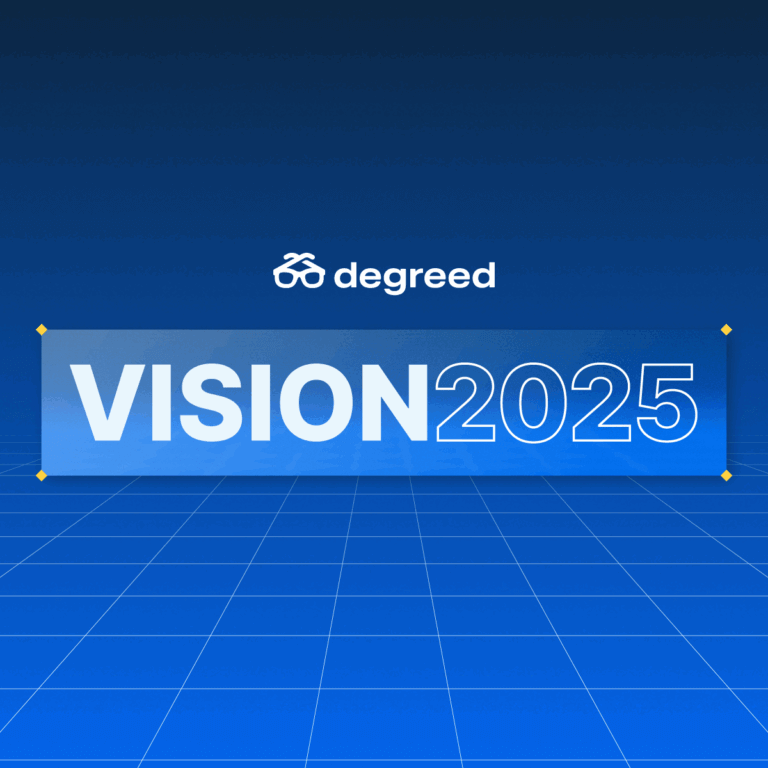
The First Steps to Dynamic, Adaptive Learning at Work
We are in the first pivotal moment for learning since the internet: the rise of AI.
That is how Degreed Founder and CEO David Blake set the scene for Vision 2025, our annual, product-focused event. And it’s true. This rapid tech evolution doesn’t just change the way we work and live, it changes the way we learn now and in the future.
To adjust to the scope of the AI transformation at hand, learning needs to become as adaptive as your people and your technology. It needs to be personalized and relevant to maximize skill-building. It has to be responsive to the needs of your people and your business at scale. That learning and adaptive resilience is going to be critical for the AI era.
“As we navigate the shift, there are going to be consequences—winners and losers—and we want to make sure that we all end up on the winning side,” Blake said.
What is Adaptive Learning?
Adaptive learning is highly personalized and responsive. It’s customized with learner-specific paths and real-time feedback, making it highly interactive and tailored to individual work.
“[Adaptive learning] is learning that adjusts automatically to the needs of the individual based on their skills, their role, their level of proficiency, and their goals,” says Nicole Helmer, Chief Product Officer at Degreed. “It’s contextual, it’s dynamic, and most importantly, it eliminates waste. So every moment of development is useful.”
Here’s what we’re doing inside Degreed to make that happen:
Automatic Quiz Generation
Skill-building in the age of AI can’t only be about efficiency, it also has to be about effectiveness. It’s no longer just about content completion, it’s about content comprehension.
Are your people really learning and able to apply new skills? Where are the gaps? Now, Degreed Maestro will be able to automatically generate quizzes so learners can test their knowledge.
With quiz results, admins and leaders can also see summaries of the results to pinpoint, then target, critical skill gaps.
Skill Proficiency Tagging and Role-to-Skill Mapping
For personalized learning to be effective, it needs to consider skill proficiency, not just what skills are on an employee’s profile.
That’s why we’ve enabled bulk skill proficiency tagging, which lets users automatically tag a large volume of content with specific skills and proficiency levels. AI will analyze content titles, descriptions, and metadata, then combine it with your company’s skill taxonomy to ensure tagging accuracy.
From there, the new role-to-skill workflow will come into play. It offers a simple, scalable way to define role expectations and suss out skill gaps. It provides a structured, easy way to map skills and target proficiency levels for every role, and then it uses that data to guide employees toward targeted learning.
Model Context Protocol (MCP)
AI that’s operating without context is about as useful as your favorite maps app without the GPS. In a learning system, it’s the context (e.g., skill data, organizational goals, role details) that will take AI from offering generic information retrieval to providing personalized learning experiences.
Model Context Protocol (MCP) gives AI a consistent, governed way to tap into the right context from Degreed and connected systems wherever those AI models live, whatever platform they’re built on (yes, including other MCP-enabled tools like Gemini and Copilot). Through MCP, AI has access to the skill data, roles, learning history, and guardrails that matter. That way, it can better personalize development and guide your people to what’s next.
Experimental Innovation
In the face of AI, learning will continue to evolve rapidly and the Degreed AI Experiments Lab is already prototyping the development of the future.
Among these experiments are several multi-step, AI-native learning experiences, including mini coaching moments, AI scoring on learner practice projects, and even smart questions and feedback loops that are woven into learning and aggregate response data.
On top of that, we continue to refine Maestro for real, in-the-flow-of-work learning experiences. We’re also growing Degreed Open Library, our repository of learning pathways on the most in-demand skills in the market. These pathways come at no extra cost to Degreed Learning clients.
All of this is only the beginning of an era of dynamic and responsive learning that’s personalized like never before. You can lean into these adaptive learning experiences to prepare your workforce for the AI transformation and beyond.
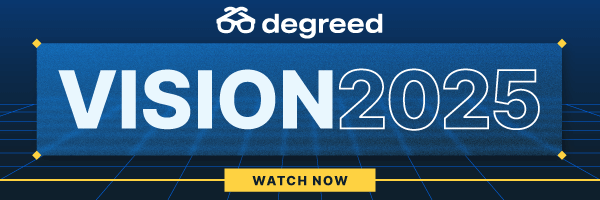
Let’s keep in touch  .
.
Sign me up for the monthly newsletter with exclusive insights, upcoming events, and updates on Degreed solutions.
